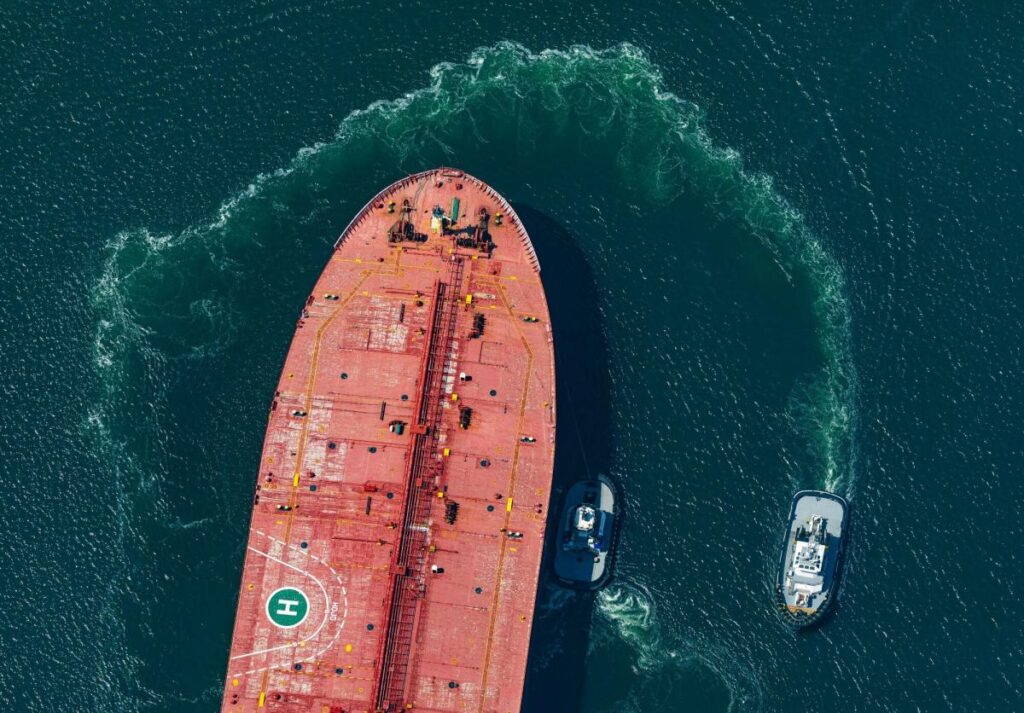The U.S. government is being vigilant about a clandestine group of tankers, often referred to as the ‘dark fleet,’ that operate in Southeast Asian waters, carrying restricted oil and engaging in ship-to-ship transfers. Geoffrey Pyatt, the U.S. State Department’s top energy official, highlighted these concerns during discussions at the Singapore International Energy Week conference. He emphasized the significant risks that these shadowy operations impose on maritime nations in the region. Pyatt pointed out that many of the vessels involved are older ships, frequently possessing questionable insurance and dubious safety records, which can further exacerbate potential hazards in these waters.
Over the past year, a substantial concentration of dark fleet tankers has been observed near Malaysia’s Johor state, where they have engaged in ship-to-ship transfers. This method is frequently employed to obscure the origins of their cargoes or to wait for future assignments without attracting much attention. Unfortunately, this practice has led to several alarming incidents, including collisions and an explosion, drawing attention to the substantial risk of a catastrophic oil spill that could result in significant environmental harm. These factors underscore the urgent necessity for regional nations to assess and mitigate the dangers associated with the operations of this dark fleet.
The U.S. is particularly attentive to the implications of these vessels carrying crude oil sourced from countries like Iran, Venezuela, and Russia. Pyatt noted the strategic importance of these developments, as Iranian oil intended for China is often misrepresented as being shipped from Malaysia to evade sanctions and international scrutiny. Despite the evident complexities and risks posed by this dark fleet, Pyatt mentioned that he had not yet engaged in direct discussions with Malaysian authorities regarding these critical issues.
While the U.S. remains focused on these developments, it also recognizes the geopolitical sensitivities in the region. Pyatt met with officials in Singapore to discuss solutions and encourage collaborative efforts to address these maritime challenges. However, the lack of direct dialogue with Malaysian representatives could hinder efforts to achieve a unified approach to tackle illegal oil transfers and ensure maritime safety. Observers stress the need for enhanced cooperation between regional states to mitigate the threats posed by unregulated maritime activities.
Malaysian Prime Minister Anwar Ibrahim has publicly dismissed the notion that Iranian-linked vessels are operating in proximity to the country’s waters, asserting that there is “not one shred of evidence” to support such claims. This skepticism reflects the complexities surrounding relationships in the region and the national interests that often dictate responses to foreign scrutiny. Furthermore, it highlights the challenges in maintaining transparency and accountability in maritime operations amid geopolitical tensions linked to oil trade.
As the situation evolves, the U.S. and Southeast Asian nations will need to navigate these complexities carefully, balancing the pursuit of energy security, environmental safeguards, and regional stability. The discussions initiated by Pyatt may serve as a starting point for addressing some of these pressing concerns, but effective solutions will largely depend on open, constructive dialogues and cooperative frameworks to manage the risks associated with the dark fleet operations in the region.

